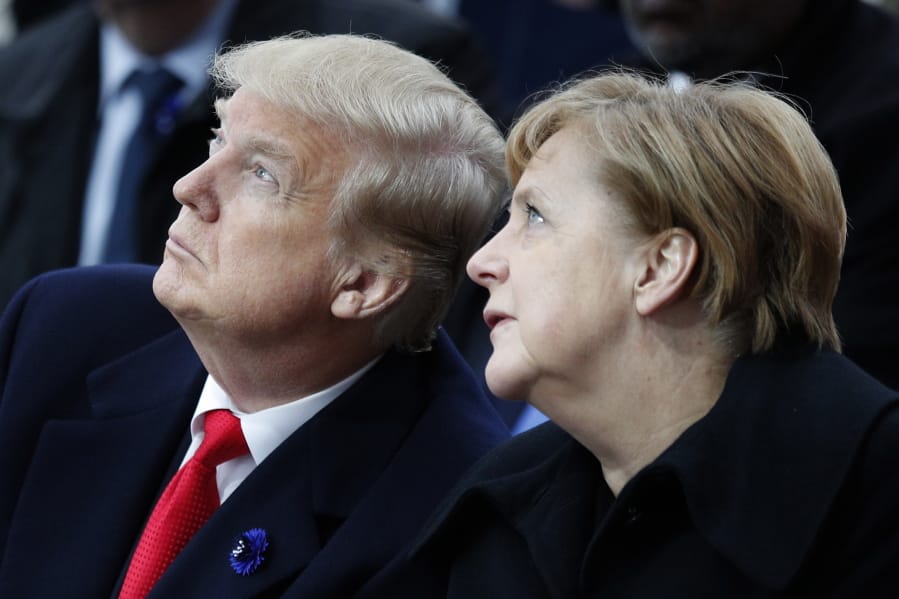BRUSSELS — NATO Secretary-General Jens Stoltenberg on Tuesday played down concern that the United States will rush to pull thousands of its troops out of Germany, as doubts swirled in Europe about when such a withdrawal might take place.
President Donald Trump has said that he is ordering a major reduction in U.S. troop strength in Germany, from around 34,500 personnel down to 25,000. Members of his own party have criticized the move as a gift to Russia and a threat to U.S. national security. Germany is a hub for U.S. operations in the Middle East and home to its European command headquarters.
“The U.S. has made it clear that no final decision has been made on how and when,” Stoltenberg told reporters on the eve of two days of video meetings between NATO defense ministers, where the issue is to be discussed. Stoltenberg has spoken to Trump about the move and says he’s also in contact with Germany.
“What matters for me is that we maintain credible deterrence and defense and that we maintain the strong link between North America and Europe,” he said. He underlined that Washington has increased its military presence in Europe in recent years, and that European allies are spending more on defense.
Trump on Monday lashed out at Germany for failing to pay enough for its own defense, branding the NATO ally “delinquent” for not meeting a goal set in 2014 for members to halt budget cuts and move toward spending at least 2% of gross national product on defense by 2024.
Stoltenberg declined to speculate on whether the timing of Trump’s announcement has anything to do with the approach of the U.S. elections in November.
NATO’s European allies will be hoping that U.S. Defense Secretary Mark Esper can shed light on the plans over the next two days. With concern mounting about Russia’s military spending and posturing, NATO is determined to show it stands ready to defend the trans-Atlantic area. But its efforts to demonstrate resolve are undermined by internal bickering, particularly involving its most powerful member.
The U.S. ambassador to NATO, Kay Bailey Hutchison, said she wasn’t aware of preparations for any possible troop withdrawal.
“Any kind of actual planning, I think, has not happened yet,” Hutchison told reporters at a video news conference Tuesday. “I don’t think that we have any kind of timeline that we have heard of.”
She described Germany as “a good partner” of the United States at NATO and said that “it should not be thought that there is any walking away from Europe, and Germany.”
Pulling out thousands of troops or transferring them — speculation is rife that some of the U.S. personnel might move to Poland should this even happen — is likely to take a few months and would be costly.
During a visit to Poland’s capital on Tuesday, German Foreign Minister Heiko Maas said his government hasn’t been given details about Washington’s plan either.
Maas said in Warsaw that Germany is still waiting to see what exactly the U.S. plan entails. He said that the U.S. military presence in Germany is important not just for Germany’s security but also for that of the U.S. and all of Europe.
In Berlin, Juergen Hardt, the foreign policy spokesman for Chancellor Angela Merkel’s conservative bloc in Parliament, said the move would damage trans-Atlantic relations further and weaken the NATO alliance, not to mention the American military’s own global footprint.
“The use of pressure in the communications between friends is unacceptable,” Hardt said. “But more than that, with this decision Trump is primarily doing the U.S. military a disservice.”
He noted that Merkel has been pushing for more defense spending toward the 2% goal and warned that Trump’s “blackmail approach” would bolster those who oppose it.
“The current push by the United States is a wake-up call to us Europeans to invest more in European defense and take more responsibly for our own security,” Hardt said.




